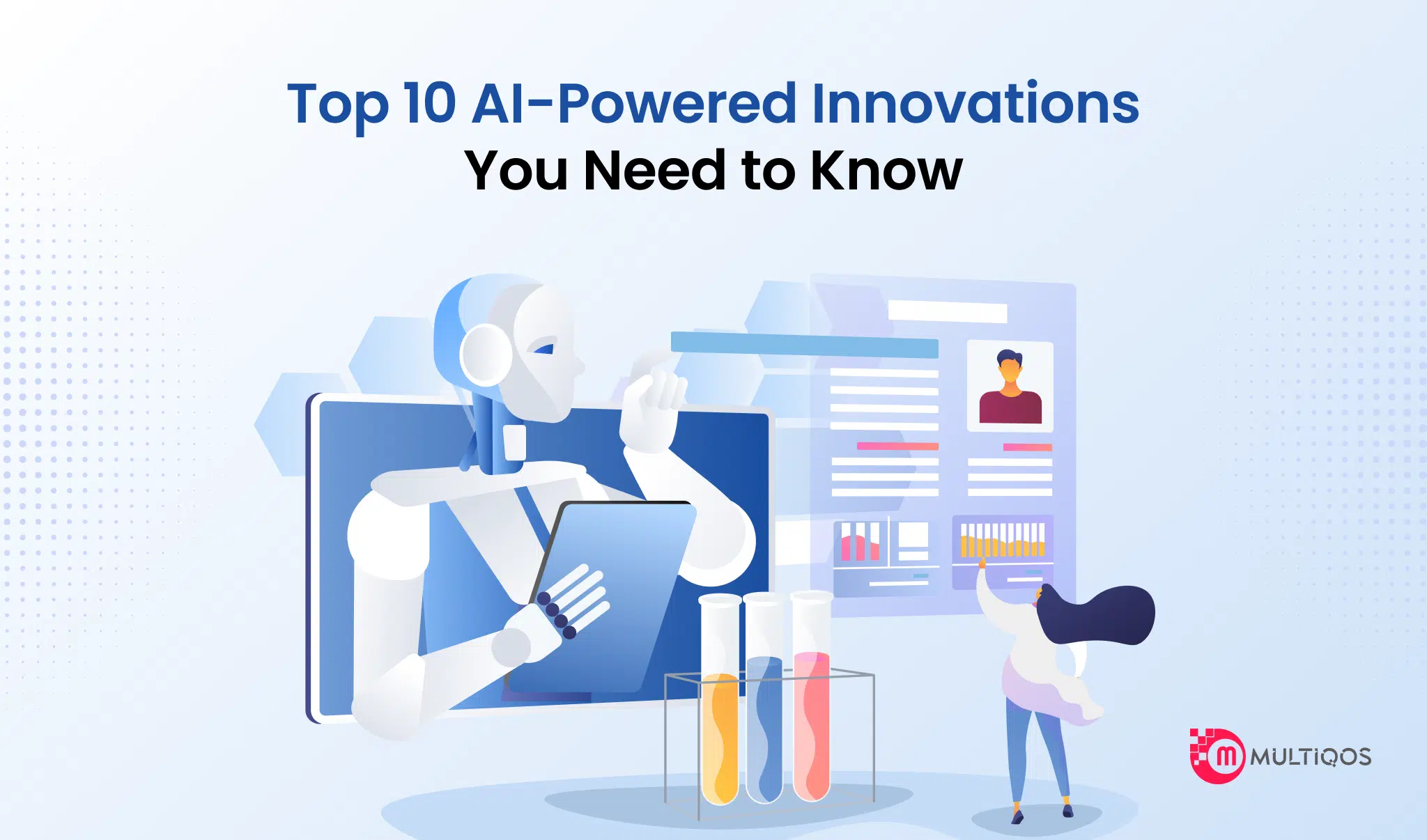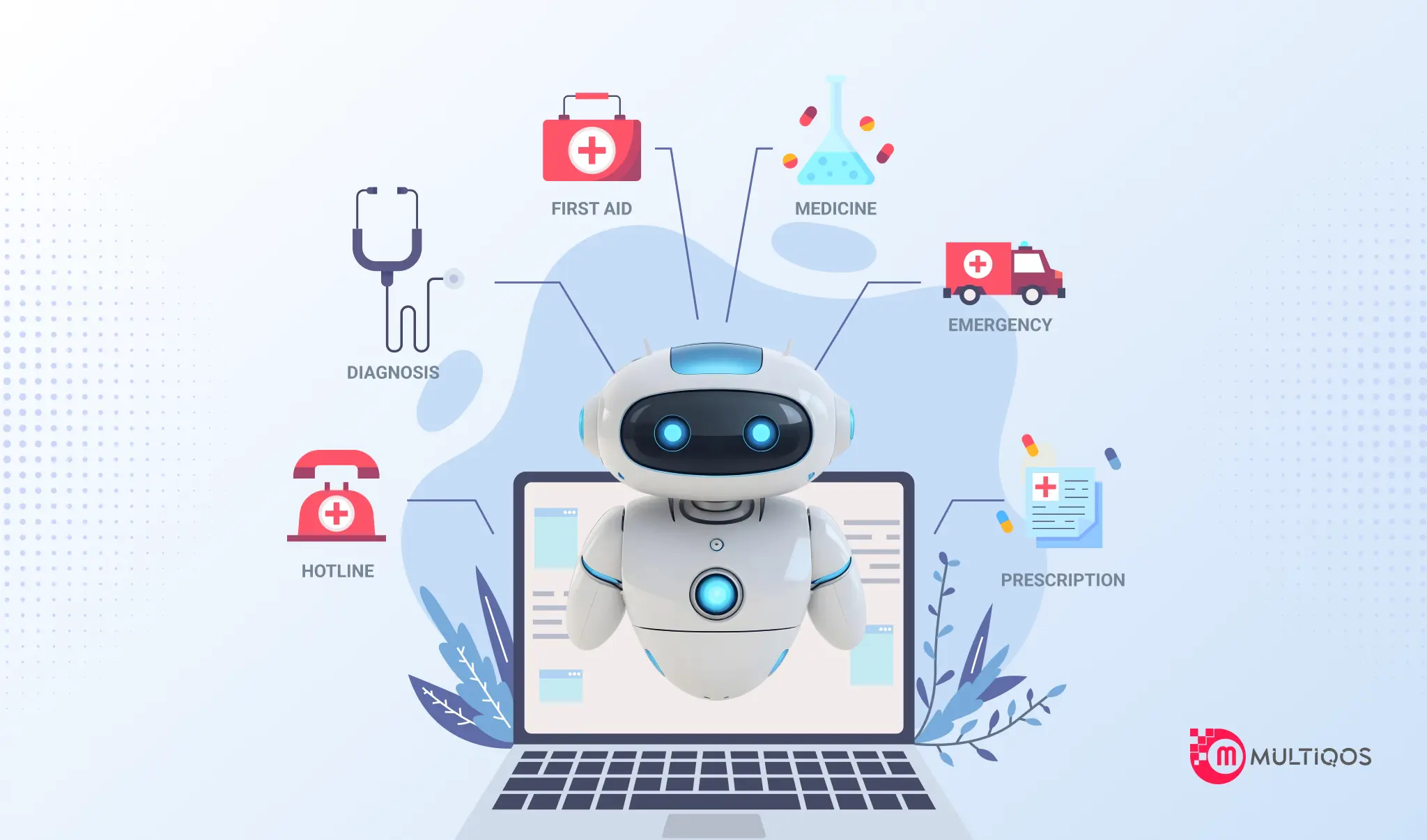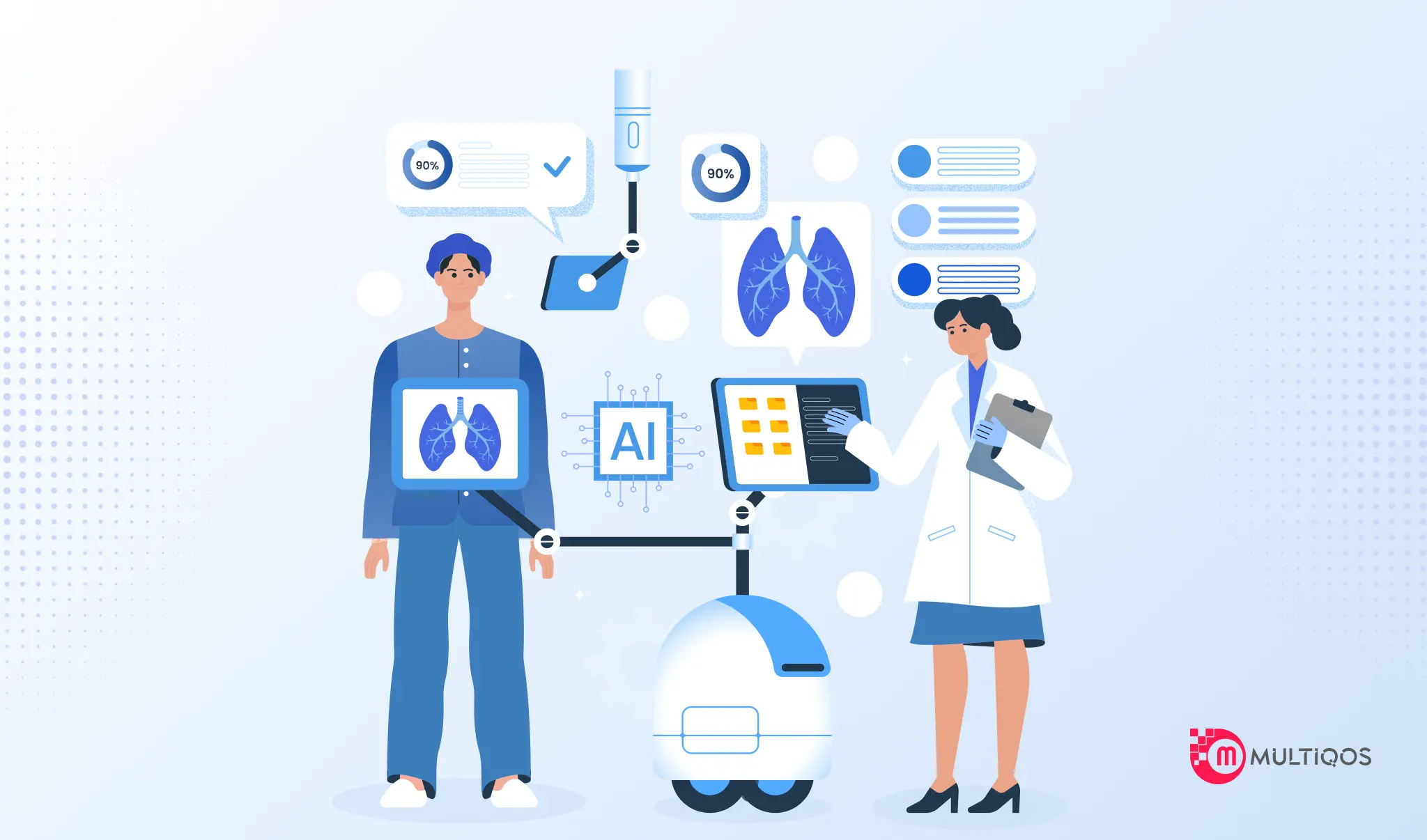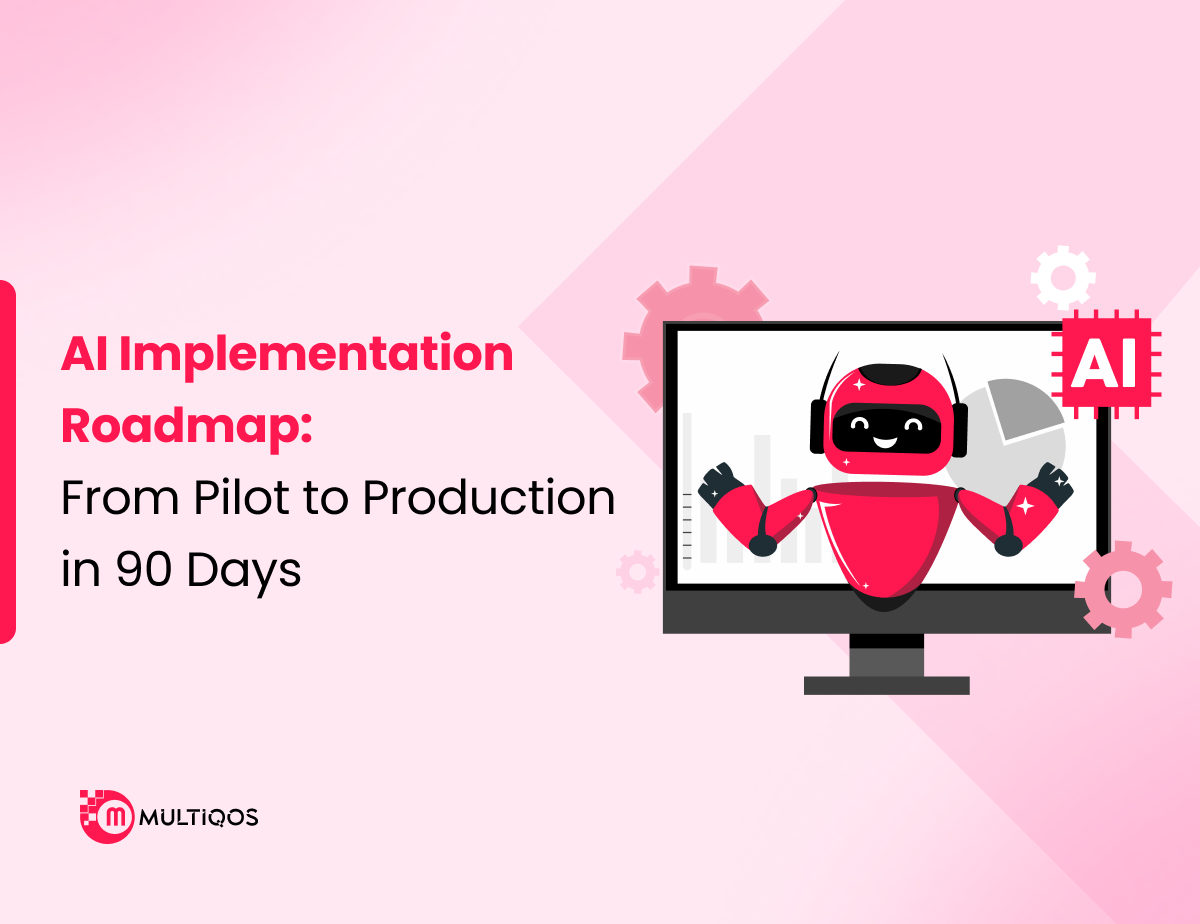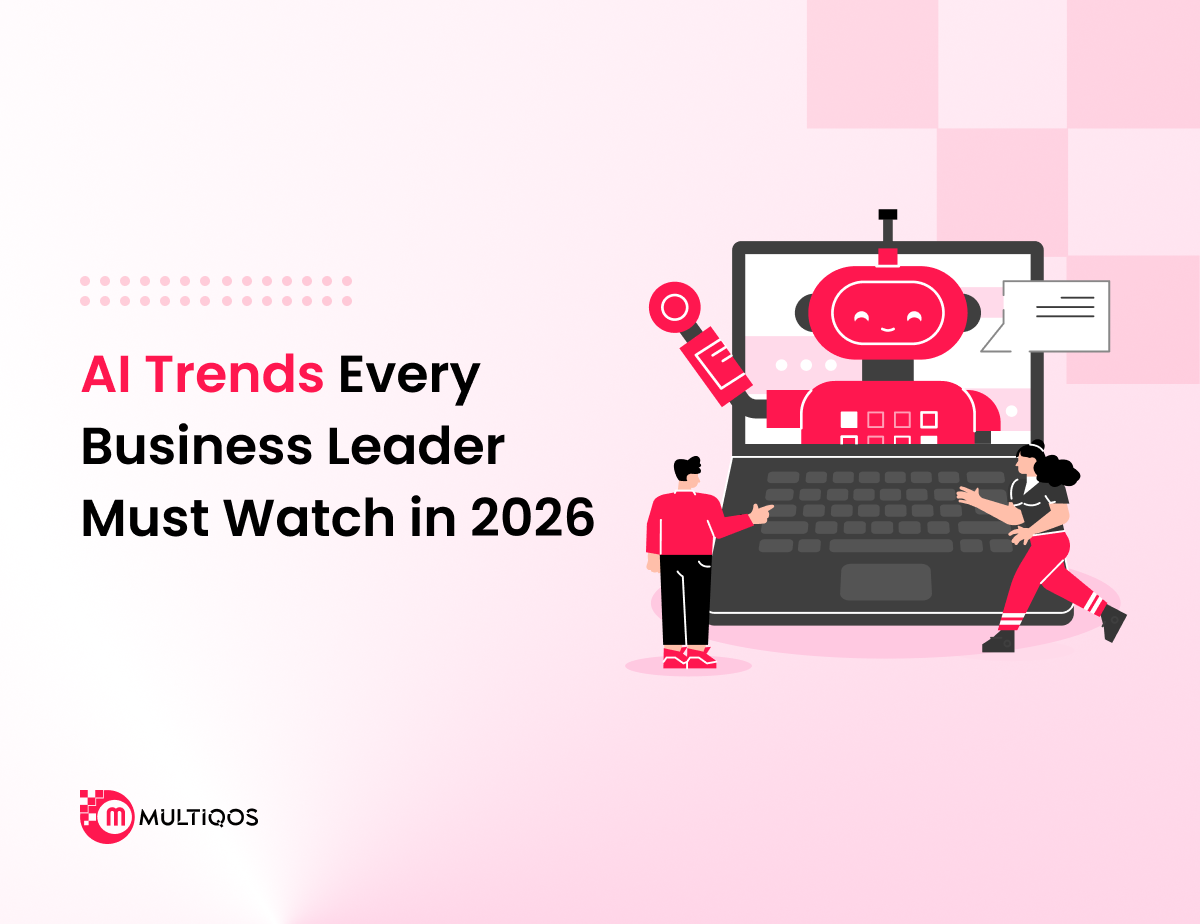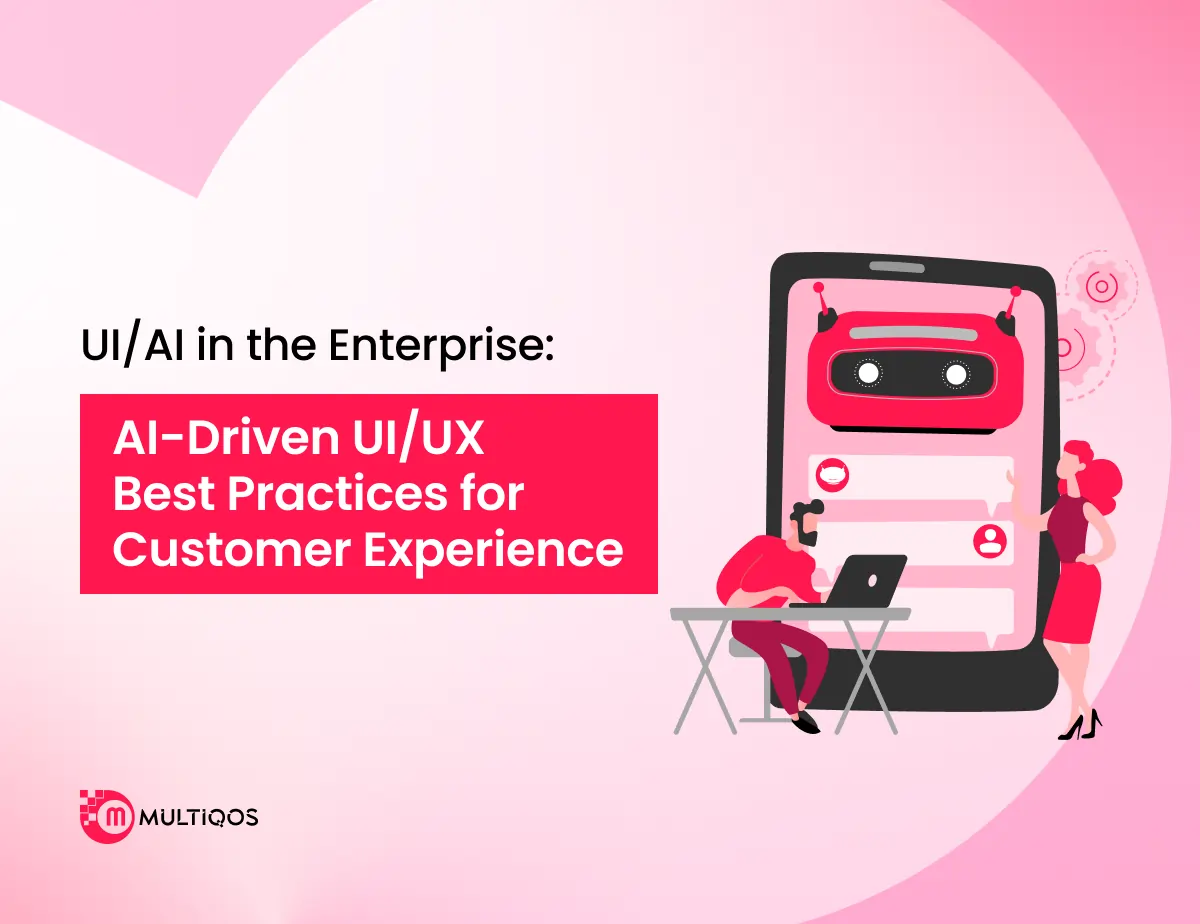Super 10 AI Innovations Revolutionizing Healthcare: From Diagnosis to Treatment
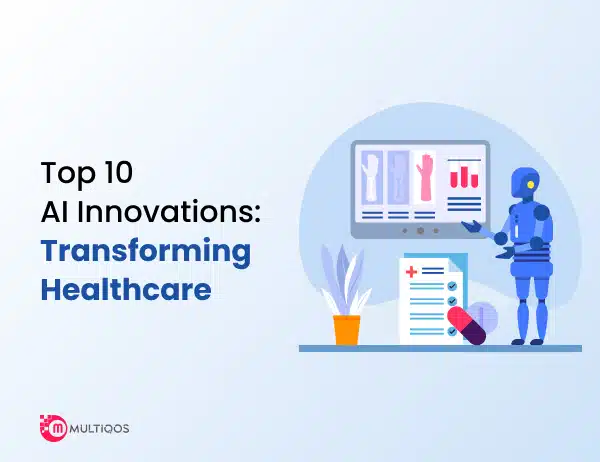
Table of Content:
Introduction
Artificial Intelligence has become one of the revolutionary technologies that have impacted the delivery of healthcare to the greatest extent and have brought great changes across all facets of medicine.
AI in healthcare is very useful in early diagnostics with improved accuracy, creating individual patient care plans as well as reshaping the way healthcare is being delivered.
According to Statista, the AI healthcare market was $11 billion in 2021 and it may reach $187 billion by 2030.
This considerable increase implies that fundamental shifts are expected in the conduct of physicians and other healthcare service deliverers, hospitals, pharmaceutical and biotech corporations, and other actors in the healthcare deliverance chain.
Studies have shown that AI models can improve diagnostic accuracy by up to 20% in certain areas, such as radiology, where AI-driven systems for analyzing medical images can identify diseases like cancer with higher precision than human doctors.
The role of Artificial Intelligence continues to evolve, helping close gaps in the delivery and accessibility of healthcare software development. This not only improves patient care but also frees up more time for providers, enhancing their efficiency. The contribution of new AI innovations in the healthcare automation sector is now widely recognized.
As the population seeks superior care for their diseases and conditions and with ever more stressful complications, AI brings solutions that were previously in the distant realm of impossibility. They not only fast the work of the healthcare industry but also equip the relevant specialists with instruments that enhance monitoring and personalized care.
This blog aims to showcase the 10 groundbreaking AI-powered health solutions that help enrich people’s lives around the world.
Top 10 AI Innovations in Healthcare:
1. AI-Powered Medical Imaging
One of the essential areas in medicine is diagnostics, and medical imaging is experiencing substantial benefits from AI. Historically, reading techniques like X-rays, CT scans, or MRI images, involved a significant amount of manual labor on the part of the radiologists.
Deep learning algorithms, which are actively used in AI apps in imaging analysis, have shown high performance in studying such images and revealing potentially invisible to the naked eye changes.
For instance, AI images of various cancer types, heart diseases, and others so that diagnosis is quicker and more accurate.
Medical imaging with the help of artificial intelligence not only increases the rate of correct detection but also the chances of an early detection of the abnormality. In areas such as radiology, if a condition that requires early detection is identified, Generative AI in healthcare apps can alert this before becoming a more severe health problem.
Such tools as IBM Watson Health and Google’s DeepMind are already used in numerous hospitals; thus, this is one of the most important updates in modern medicine.
2. Predictive Analytics for Disease Prevention
In addition to revolutionizing treatments, AI is also growing to be a tool for proactive intervention against disease.
Through EHRs, the patient’s genetic information, and his lifestyle, AI algorithms can determine the risk of getting a specific disease long before an actual manifestation of the disease.
This makes it possible to offer customized preventive care since even if the disease is not fully developed it is possible to prescribe changes in lifestyle, early tests, or medications.
AI-based predictive analytics can greatly decrease the toll of chronic diseases including diabetes, heart diseases, and cancer, using early prevention mechanisms that may halt these diseases from occurring in the first place.
For instance, the AI models that scan EHR can help physicians identify the populations with those who would require early treatment or possible prevention programs. It also helps to prevent the development of serious diseases, which will reduce the cost of the population’s treatment in the future.
3. Virtual Health Assistants and Chatbots
Telemedicine and AI-based virtual health assistants and chatbots have become the new way of patient engagement through real-time health advice. These AI-integrated platforms use natural language processing to engage the patients, educating them, asking questions, and reminding them of medications, appointments, and even fitness tips.
The use of such tools is most useful for patients who require constant assistance but may not be able to get to a doctor or other health care provider frequently.
AI-powered health solutions and chatbots are now applied in many healthcare organizations as additional resources for handling and monitoring patients daily, initial evaluation, and post-treatment.
Others like Babylon Health and Ada Health are using Artificial Intelligence to diagnose various symptoms and offer recommendations to users on how to handle some conditions from the comfort of their homes.
These technologies not only make it easier for patients to get their needs met but also offload work from healthcare professionals so they can attend to more complicated cases.
4. Remote Patient Monitoring and Telemedicine
Artificial intelligence-driven RPM and telemedicine and AI systems have been central in transforming the healthcare automation industry, especially among outreaches and remote regions.
With the help of devices that constantly record patient data such as heart rate, blood glucose levels, and oxygen level, AI apps can give physicians immediate data, and prompt actions are made without having to attend frequent hospital check-ups.
This is especially advantageous to patients who have chronic diseases and other ailment conditions, elderly people, as well as those from rural settings since they are likely to access the health care practitioners’ services rarely.
Telemedicine and AI have helped the patient to get an appointment with the doctor even without being physically present.
In such ways artificial intelligence-based platforms can sort through patients, offer first-cut diagnoses and even schedule subsequent appointments which improve client experience and ease the pressure on the system. These technologies have predicted a high growth especially in the recent COVID-19 pandemic, signifying how AI will transform the delivery of healthcare across the globe.
5. AI in Clinical Decision Support
Clinical decision support systems (CDSS) are therefore AI tools that can help clinicians make better decisions about patients’ treatment. AI-based CDSS can provide possible diagnoses, treatment plans, and risks by using patient data in real-time. These systems minimize diagnostic mistakes, prevent drug interactions, and enhance patient safety.
For instance, AI algorithms have been implemented in hospital information technology systems to help in identifying diseases such as sepsis, stroke, and cancer, providing clinicians with good information after analyzing the patients’ information.
Similar applications such as IBM Watson for Oncology are already assisting physicians in making the right choices in cancer treatment strategies that can be appropriate for the patient based on the patient’s genomic and medical history.
6. Medical Robotic
Another important application that AI is playing at the current moment is a medical one: medical robotics and hospital robots. This technology, exemplified by the Da Vinci Surgical System, incorporates AI to guide surgeons through accomplishing intricate minimally invasive procedures with remarkable accuracy – a capability that results in less invasive surgery, less recovery time from the procedure, and minimal risk of associated complications.
In hospital robots, AI is also applied to automate functions like cleaning, dispensing medicine, and moving equipment and other essentials, enhancing the efficiency of hospitals.
Some of these innovations increase patient outcomes by introducing better technological precision in surgery and minimizing the role of human error. For instance, in surgery, AI-assisted robotic devices can adapt their movements in response to a surgeon in the operating theater to guarantee accuracy in sensitive operations.
The conservative use of these technologies is changing with more and more hospitals implementing the use of AI in the healthcare industry for surgeries hence improving the operations and the care of the patients.
7. Healthcare Analytics
AI is a significant concept in healthcare analytics, which involves handling big data to diagnose, forecast risk factors, and enhance the quality of healthcare services.
From analyzing huge volumes of data sourced from patients’ records, hospital and other health databases, and public health information banks, AI systems are capable of forecasting disease outbreaks, monitoring patients’ progress, or even identifying populations most vulnerable to certain diseases.
For instance, predictive analytics on the use of artificial intelligence is being used to predict possible health scourges like flu epidemic or other spread diseases. AI can also come to know some persons who are susceptible to certain chronic diseases such as diabetes, hypertension, and others.
Large datasets are being used by AI to make decisions in healthcare automation allowing for better general state of population health and lower costs of healthcare.
8. Personalized Healthcare
Precision medicine is an innovative concept of providing treatment in healthcare that is customized according to the features of the patient. AI studies genetic, environmental, and lifestyle indicators to determine efficient treatment plans bringing the best of the treatments’ impact and the minimum level of side effects for the patients.
This change in practice guarantees that the patient will get the therapy that is best suited for his or her ailment.
For instance, in oncology, AI is applied in individualized therapy in which a treatment regimen is developed concerning the particular genetic markers of the patient and the cancer cells.
With the help of AI-integrated systems, a patient’s reaction can be forecast on a certain medication, and the required treatment can be chosen. Individual patient care makes it possible to complete interventions with the maximum benefit to the patient, which cannot but positively affect the results.
9. AI in Clinical Trials and Drug Development
This is proved by the fact that AI is changing the conventional manner in which the discovery of drugs and clinical trials are being conducted by improving the speed of the whole process.
Because AI algorithms can process large quantities of molecular information, the identification process of potential drugs is much faster than conventional methods.
AI can also reduce the time taken in patient recruitment, predicting trial recruitment time, recommended trial design, and choice of the most suitable patients based on their genetics and health records.
Currently, pharma firms are applying AI technology to unlock faster discovery of new treatments. For example, Insilico Medicine is using AI to find new drug moieties, which saves lots of time and money needed for the same. Another area where the use of AI is valuable in clinical trials is patient enrollment and developing clinical trials in the best way possible.
10. Cybersecurity in Healthcare
COVID-19 has brought about increased adoption of technology in the delivery of healthcare automation hence the need to embrace cybersecurity. AI is being used in the fight against cyber threats as patient data is constantly under threat from hackers.
Technological advancement and specifically the application of Artificial intelligence to cybersecurity can help analyze for any anomalous traffic pattern in the network, and any vulnerability and act in real-time to check on any breach involving sensitive health information.
Due to the rising healthcare facility computerization and increased use of electronic health records, healthcare organizations are now using AI cybersecurity solutions. These tools leverage the use of machine learning in healthcare algorithms to manage security incidents and their risks and are more suitable given the current high levels of cyber threats.
Conclusion
AI in healthcare is revolutionizing the industry as a whole as well as how patients are evaluated and cared for at all levels of the system. Healthcare professionals’ capacity to provide better patient care and lower costs is being improved by AI and machine learning advancements.
Further integration of these technologies into healthcare can only help AI become the answer for more intelligent, practical, and effective medical care on a global scale. The top ten AI advancements discussed in this blog post barely scratch the surface of how AI is revolutionizing the healthcare industry; many more will follow in the years to come.
Being an AI development company, we have a significant stake in the ongoing advancement of AI technologies that are revolutionizing the medical field.
Working with MultiQoS, a provider of healthcare software development services, results in solutions that enhance patient care, diagnostics, and cost-effectiveness. Our solutions, which are powered by artificial intelligence, aim to improve healthcare by making it more efficient and enabling providers to provide better patient care.
Frequently Asked Questions
A few of these advancements are Evidence-based treatment recommendations, predictive modeling, and AI-driven decision aids in clinical decision-making with better efficiency in terms of patients’ data specificity.
ML applies patient data to forecast ailment probability before the onset of symptoms and allows tests or modifications in lifestyle to avoid occurrences like diabetes or heart disease.
When it comes to AI in healthcare solutions, we offer services like artificial intelligence in disease risk modeling, AI in treatment planning, and also intelligent medical imaging that improves diagnostic precision in healthcare.
Of course, we offer unique and custom AI solutions that suit the needs of healthcare providers and hospitals, including creating advanced telemedicine systems and enhancing medical analytics for improved patient outcomes.
Get In Touch


